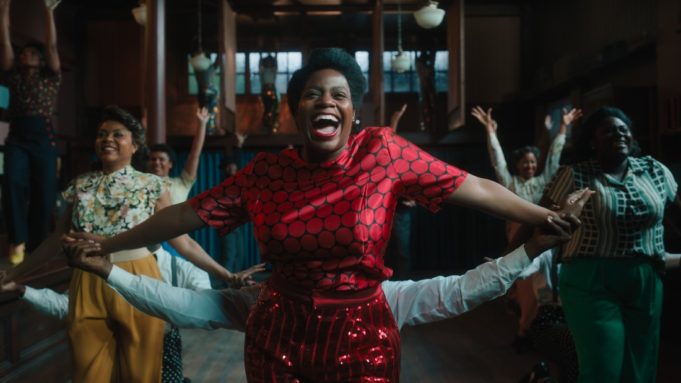There was not as much outcry as you might expect when Steven Spielberg was announced as the director of The Color Purple in the early 1980s. That’s because at the time, there were no Black filmmakers that any Hollywood studio would have trusted with such a big, prestigious project. (Just a few years later, this would no longer be true, and Spike Lee would direct Malcolm X.) Spielberg’s awareness of being a white director adapting Alice Walker’s novel and one of African-American literature’s great masterpieces of the 20th century perhaps accounts for his movie’s weirdly stilted quality, as glorious-looking as it is.
Stiltedness is not a problem for the new version of The Color Purple, which also happens to look glorious and is adapted from the Broadway musical version of the story. Ghanaian director Blitz Bazawule brings the show to blazing life on the screen. If you’ve never heard of him, he previously helmed the feature The Burial of Kojo in his own country and then Beyoncé’s long-form music video Black Is King. It’s unprecedented for Hollywood to hand such a big-ticket item to an African director with such a light resumé. The good news is, he does a good enough job to make you wonder why the studios didn’t do this before.
If you’re unfamiliar with the novel or the Broadway show, the story begins in rural Georgia in the early 1900s, as young Celie (Phylicia Pearl Mpasi) is torn away from her beloved sister Nettie (Halle Bailey) and married off to an abusive older man she only knows as Mister (Colman Domingo). Over the next 40 years, as she yearns to hear from Nettie, grown-up Celie (Fantasia Barrino) finds common cause with Mister’s son Harpo (Corey Hawkins) and his wife Sofia (Danielle Brooks) and falls for Shug (Taraji P. Henson), a famous blues singer whom Mister unsuccessfully tried to marry earlier.
Oh, how I wish the movie had better songs. The ones here are by Stephen Bray, Brenda Russell, and Allee Willis, and I couldn’t remember a single one when the movie was over. The original songs written for this movie don’t improve things much, either. Fortunately, everything else goes to compensate for this weakness. Choreographer Fatima Robinson is a seasoned pro whose track record includes Dreamgirls, numerous Oscar ceremonies, and Beyoncé’s Renaissance tour (her work is visible in the movie), brings out the dynamic side of performers like Domingo and Hawkins, whose dancing dominates the “Workin’” number.
For his part, Bazawule knows how to find dramatic backdrops to the musical numbers, from the spectacular waterfall behind “She Be Mine” to the beach lined with dead trees on the duet “Keep It Moving” to the Art Deco stage set for “What About Love?,” which makes Celie and Shug’s love duet take on the elegance of an Astaire-Rogers dance number. If you want to, you can point out that Bazawule has some trouble wrangling this sprawling story into shape and misses some of the complexities in Walker’s novel, but I judge musicals on the strength of their numbers, and his staging gives the film a distinctive crackle.
Even more valuable is this ensemble cast, with Barrino and Brooks both having played their roles in previous stage productions of the show. Brooks is in tremendous voice in her number “Hell No!,” and she also devastatingly captures Sofia’s devolution from firebrand to beaten-down inmate after she’s thrown in prison for mouthing off to a white woman. For their parts, Henson does not slack off in the blues song “Push da Button,” and Barrino gives the proper uplift to the climactic ballad “I’m Here.” This cast is so deep that the contributions come from ninth- and tenth-billed players — David Alan Grier plays Shug’s father and the local preacher, and who knew the guy from In Living Color could sing and play piano? The cameo appearances by H.E.R., Ciara, Louis Gossett Jr., and an uncredited Whoopi Goldberg all add to the festivities in this celebration of the joy, depth, and skill of these performers. They make The Color Purple into Christmas’ best piece of entertainment, and also something more.
The Color Purple
Starring Fantasia Barrino and Taraji P. Henson. Directed by Blitz Bazawule. Written by Marcus Gardley, based on Alice Walker’s novel and Marsha Norman’s musical play. Rated PG-13. Opens Monday.












